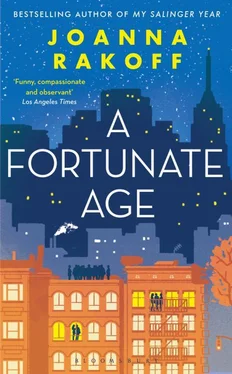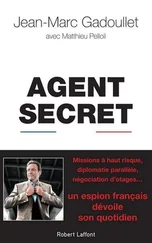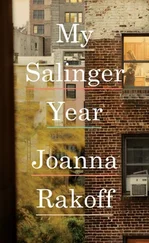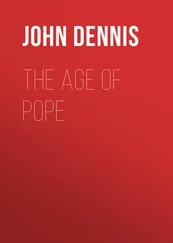She squeezed past them and stared, glassy-eyed, at Curtis. With his long, sad face, his large, watery eyes, airbrushed and exploded 300 percent—literally larger than life—she saw what she’d never seen in the flesh-and-blood Curtis: a strange ferocity. She had been such a fool. She had believed it all, this romantic crap. She had really believed it, some mystical system of cause and effect, in which Curtis had no desire or need for material, earthly success—wanted only to be able to do what he loved to do, even if it meant living in a pup tent and eating beans—and was rewarded for his lack of ambition, while she, she had wanted it all too badly, and thus would never have it. It was all just bullshit . Curtis had wanted it more than anything. And she hadn’t wanted it enough. That was the truth. The real, actual truth. She had jumped at the chance to give up auditioning. She had freed Curtis from keeping his promises to her, freed him to go back to Amy. And Amy? Well, she’d fought for him—and won. Perhaps she really did love him more than Emily did. Or perhaps Emily wasn’t capable of loving anyone or anything enough to fight for it. Sadie, she knew, would say that Curtis shouldn’t have made her fight for him in the first place. That he didn’t love her enough. That he was weak. But then what did Sadie know, Sadie, who’d never had to fight for anyone, anything, in her life. (“What would she do,” Lil had asked Emily years back, “if men didn’t just fall in love with her on sight?”)
Across Broadway beckoned the maroon interior of a Starbucks knockoff that had recently joined forces with an overpriced sandwich shop. Hiking her bag on her shoulder, she crossed the street and strode inside, squeezing through the maze of small tables, and found a seat near the south window. All around her, tourists gabbled in French and Spanish and German, and NYU students in faded jeans and pastel lip gloss chatted about their boyfriends (“He’ll only give me his cell number!” “Okay, so he’s totally married!”). At the next table, two dark-haired women spoke in low, husky voices, taking large sips of red wine and fumbling with their packets of cigarettes. “Cabernet,” Emily mumbled, to her surprise, when the waiter came to take her order. Maybe I am an alcoholic , she thought.
When the wine came, she drank deeply. The warmth that spread through her head and limbs was thrilling—she was strong, invincible, she could do anything, fight anyone for anything, she could . The room slowly came into sharp focus and she saw that she was the only lone woman. The only lone woman and there she sat, drinking, alone . “Oh my God,” she said, shaking her head as if to clear it of thoughts. She pulled out her wallet, extracted a ten, slipped it under the wineglass, got back on the subway, and went directly home, where she found her apartment a bit less haunted than she’d imagined. The red light on her answering machine blinked angrily. Suddenly, she was tired, exhausted, but she would not go to bed, not without doing something, something to show she was not defeated, so she watered her plants—the African violet in the north window (a gift from her boss), the ivy in the bedroom, the spider plant in the south window—and knelt by the bathtub to wash the dishes. She made the bed, put her clothing away, changed out of her work dress and into her kimono, then sat down cross-legged on the floor in front of her answering machine, which itself sat on a small tile table, a gift from Curtis, who had given it to her soon after they met, when he noticed that she kept the machine on the floor. This was the sort of person Curtis was, she thought, biting her lip again: he didn’t mind living in a pup tent and eating beans, but he thought it barbaric that she didn’t own a phone table.
Gathering a pad and pen, she pressed play and listened to Sadie, Lil, Dave, and Beth ask her if she wanted to head to Dave’s place together (Sadie, Lil), what time she might arrive (Dave, Beth), and why she wasn’t there (Dave again). The sixth, seventh, and eighth messages were from her mother, pinched and impatient (“Emily, if you’re there, pick up—Please, Emily— now ”), increasingly angry (“Emily, where are you? your cell is off; call me back ”). The ninth caller she couldn’t place at first: “Hi, Em, just calling to say hello and, um, see how you’re doing. I guess you’re out.” The voice was high, sweet, female, slightly nervous, slightly shy, hesitant, apologetic. Her stomach twitched: Clara. She stopped the message midway and replayed it.
“Hi, Emily, just calling to say hello, and um, see how you’re doing. I guess you’re out. I kind of need to talk to you and there’s no way for you to call me here, really, so I guess I’ll try you later. Or maybe, well, I guess I’ll just tell you why I’m calling. I don’t know if Mom told you or not, but they’re letting me out of here on the tenth. Um, next Monday. And I—” Here her voice wavered. “I don’t really have anywhere to go. I can’t go back and stay with Mom and Dad. I just can’t. I thought, well, I talked about it with Mom and with my doctor, and I thought, well, I’m really okay now. I feel like, I think, I finally understand things. You’re going to be amazed, Em. For the first time, I feel like I can think clearly. And if it’s okay, I thought, well, I thought I would come live with you.”
Bad luck came in threes, Emily supposed. Her play, Curtis, and now Clara. If everything went well with Clara, Emily thought herself surely due for a dramatic change of fate. Yet, all these things—the play, Curtis, Clara—struck her as thoroughly interlinked, incapable of existing without the others. Had she not been tossed out of the play, and subsequently sunk into a depression or crisis of identity or whatever it was, then things with Curtis might not have fallen apart. And had she not freed Curtis to return to Amy, then Emily might not have allowed Clara to come stay with her.
Her friends were appalled by this latest turn of events. “How long is she going to stay?” asked Lil. “Is she going to sleep on the couch? What if you meet someone? You’ll have no privacy.” This was true; Emily’s small bedroom had no door, just an archway that led directly into the living room. “Is she going to get a job?” Sadie, ever practical, wanted to know. “You can’t support her forever. It’ll kill you. You can’t .”
But she wouldn’t have to. While Clara was at Brattleboro, her parents had completed the paperwork—mountains of it, according to her mom—necessary to get Clara on SSI, which was, Emily found out, disability for crazy people. The payments, her mom said, should start soon after Clara’s arrival, along with a lump sum representing compensation from the date the Kaplans had filed. Emily thought they could use the money to find a larger apartment. “It’s not going to be that much,” Sadie told her. “There’s no way. She’s going to have to get a job.”
“Yeah,” said Emily doubtfully. “I guess so.”
“You know, you don’t have to do this, Em,” Sadie insisted, her straight brows moving closer together, Jack sleeping on her chest in a pale blue sling. Ed had left for Toronto the previous day but she still, to Emily, seemed perfectly at ease, as if she’d always had an infant curled up on her like a pea pod. They were sitting in the new café on Bedford, where a mall, of sorts, had been installed in the shell of the old girdle factory, and everyone around them seemed younger and in pursuit of a level of hipness that made Emily deeply anxious. On their faces, aviator glasses. On their feet, brightly colored Pumas, Nikes, Adidas. On their legs, shredded jeans of recent vintage. On their heads, the sorts of billed caps worn by truckers and convenience-store attendants, emblazoned with embroidered patches advertising obsolete products or brands of interest to the ironically inclined: CAT, John Deere, U-Haul, Pabst Blue Ribbon, Caldor. The guy sitting next to Sadie wore his whiskers in an elaborate handlebar shape. “He’s styling the Marc Jacobs show,” he told his companion, an overweight girl with a bowl cut. “I’m so jealous.”
Читать дальше












